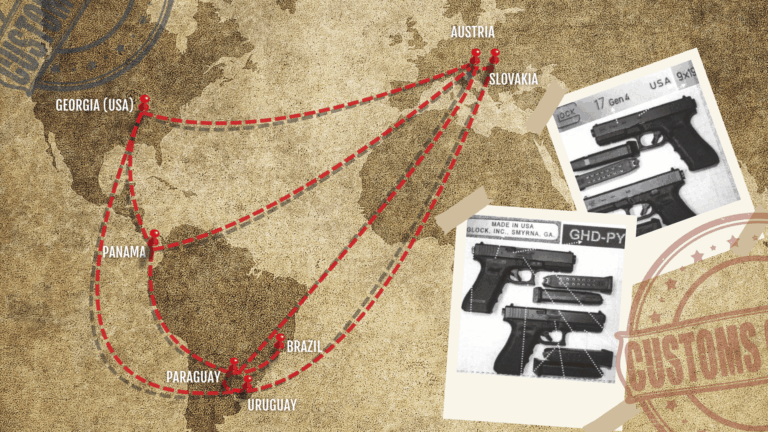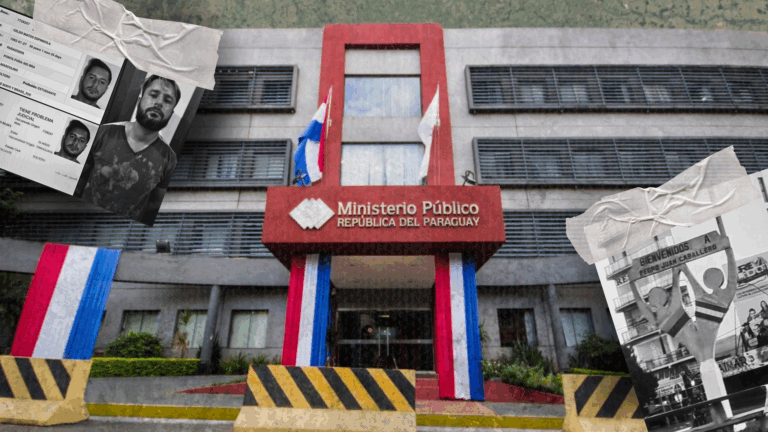- READING TIME : 5 min.
Espionage, threats, suspicious deaths: Rwanda tries to silence its opponents abroad
Critics of Paul Kagame’s regime are the target of major transnational repression in Sweden, Netherlands, Belgium, South Africa, Tanzania and elsewhere. Documents and testimonies obtained by Forbidden Stories and its media partners reveal intimidation tactics and troubling disappearances of exiled Rwandans.
(Visuel : Mélody Da Fonseca)
- Our research suggests that Rwanda has developed a system of surveillance and repression, even carrying out assassinations against members of its diaspora in Europe and Africa.
- Dissident journalists and former soldiers are among dozens of potential targets, earning the country a place among the “top ten perpetrators of transnational repression,” according to the NGO Freedom House.
By Karine Pfenniger
May 28, 2024 modified June 3rd, 2024
With the participation of Ghizlane Kounda (RTBF), Samuel Baker Byansi (M28 Investigates), Youssr Youssef (Forbidden Stories), Sophia Baumann (paper trail media), Maria Retter (paper trail media), Christina Schmidt (Die Zeit), Bram Endedijk (NRC), Wilmer Heck (NRC), Johan Ripås (SVT), Evelyn Groenink (ZAM).
Jean Bosco Gasasira has been living in exile for almost 14 years. In 2010, the journalist and editor-in-chief of the independent newspaper Umuvugizi fled Rwanda after claiming to have received multiple threats. A few months later, the interim editor-in-chief was assassinated in Kigali and the newspaper was banned by authorities.
Bosco Gasasira was granted asylum in Sweden, but the intimidation tactics continued. According to phone-tap transcripts obtained by Forbidden Stories, a high-ranking Rwandan officer, Jack Nziza, oversaw a spy tasked with tracking down Bosco Gasasira.
5 million Kronor for his address
Hunted and fearing for his life, Bosco Gasasira went off the grid for several months. “I felt dead,” the journalist told Forbidden Stories in a video interview. Not long after, a Rwandan diplomat was expelled from Sweden for spying on Rwandan refugees. In 2013, a Swedish court convicted the spy of “illegal intelligence activities,” on the basis, among other things, of his tapped conversations with Jack Nziza. Both did not answer our requests for comments.
However, efforts to track down Bosco Gasasira seemingly continued. In 2021, staff at the Rwandan Embassy in Sweden reportedly offered 5 million Kronor—around €490,000 at the time—to his relatives in exchange for his address, according to Swedish media outlet Journalisten. (The Rwandan embassy in Sweden did not respond to our questions.) The continued persecution has taken a toll on Bosco Gasasira’s physical and mental health. He said he left journalism.
These stunning acts of espionage against a journalist, which openly implicate a high-ranking Rwandan military officer, is not an isolated case. The second part of our Rwanda Classified investigation, based on the work of a consortium of 50 journalists in 11 countries, brings to light the transnational repression exercised by Rwanda in Europe and Africa.
“The Rwandan government poses an imminent threat to his life”
Extensive research suggests that Rwanda has fashioned a system of surveillance and repression, going so far as to plan assassinations against members of its diaspora—notably, journalists. Our investigation, based on official documents and the testimonies of several dozen victims and their relatives, supports facts documented previously by media and NGOs, such as Human Rights Watch and Freedom House.
In 2010, General Kayumba Nyamwasa, former head of military intelligence turned exiled political opponent, survived an assassination attempt in Johannesburg. The South African justice system concluded that this crime was motivated by “politics” and that it originated from “a certain group of people in Rwanda,” according to a copy of the judgment that we obtained.
In 2011, activist René Claudel Mugenzi learned that “the Rwandan government poses an imminent threat to [his] life,” as stated in a document from the London Police, of which we saw a copy. The Rwandan government denied having made any threats towards Mugenzi.
In another case, Canadian journalist Judi Rever, author of a book alluding to controversial theories, needed protection by the Belgian State Security Service in 2014.
Support us so that we can continue investigating
We need your help to expose what the enemies of the press try to keep quiet.
Kidnapping, attempted poisoning, anonymous phone calls
That same year, former Rwandan intelligence chief, Patrick Karegeya, was found strangled to death in a Johannesburg hotel room. The Guardian reported in 2019 that during the ensuing criminal inquest, an investigator testified that the murder was “directly linked to the involvement of the Rwandan government.” Karegeya’s death has been at the heart of diplomatic tensions with Belgium (read here).
In 2017, soldier Joseph Mazimpaka was kidnapped by Rwandan intelligence agents in Tanzania. He later escaped. This kidnapping attempt was confirmed by Human Rights Watch, as well as court documents examined from a trial detailing the testimonies of several police officers.
Others have had their lives threatened too. According to a complaint he filed, activist Paul Rusesabagina was warned of the existence of a poisoning project set up by Rwandan intelligence in 2018, two years before his kidnapping by the Kigali regime (read his interview here).
In Germany, several Rwandans confided in Forbidden Stories’ partners that they had received anonymous threatening calls, or had encountered difficulties with the Rwandan Embassy in Germany.
Similarly, in the Netherlands, the daily publication NRC collected the testimonies of multiple people claiming to have been intimidated, including a Dutch citizen who says he was attacked and wounded in the eye during a 2018 public appearance of Paul Kagame in Brussels.
Furthermore, according to a written statement seen by NRC, a former Rwandan ambassador to the Netherlands was reportedly ordered to eliminate Rwandans from the Netherlands, prompting him to flee the country. The Rwandan embassy in the Netherlands did not answer the consortium’s questions.
Instilling “a climate of fear”
All these cases attest to the strategy developed by Rwanda to muzzle its diaspora through forms of “violence, such as assassinations, assaults, unexplained disappearances, the coercion of family members, spyware, and other [methods] such as passport control,” said Grady Vaughan, an associate researcher at Freedom House, which has published several reports on the transnational repression of Paul Kagame’s regime.
According to Vaughan, this puts the small country of 13 million people among the “top ten perpetrators of transnational repression,” alongside giants such as China, Russia, and Iran.
For Clémentine de Montjoye, a senior researcher with the African division of Human Rights Watch, the tactics employed by Rwanda “form a system put in place by the Rwandan government to monitor, control, and ultimately silence criticism.”
“Democratic countries keep doing business with a regime notorious for its transnational crimes—not to mention the crimes it commits on its own territory.”
“The message Rwanda is sending to these people outside the country is very, very clear: ‘We will silence you,’” echoed Lewis Mudge, Central Africa Director at Human Rights Watch. According to him, the government aims to create “a climate of fear.”
Asked about the multiple results of the Rwanda Classified investigation, the government of Rwanda and the office of the president of Rwanda did not respond.
In 1998, former Rwandan Interior Minister, Seth Sendashonga, was assassinated in Kenya where he was living in exile. His widow, Cyriaque Nikuze Sendashonga, living in Canada denounced the lack of outrage from western states after his death. “Democratic countries, which normally one would expect to be champions of human rights, keep doing business with a regime notorious for its transnational crimes—not to mention the crimes it commits on its own territory,” she told Forbidden Stories.
Some 14 years after he arrived in Sweden, Jean Bosco Gasasira says he is living in confinement. He shows the long scar that he claims was left on his skull from an iron bar in Rwanda in 2007. To this day, he says he suffers from the side effects of the violent hit.
See also





